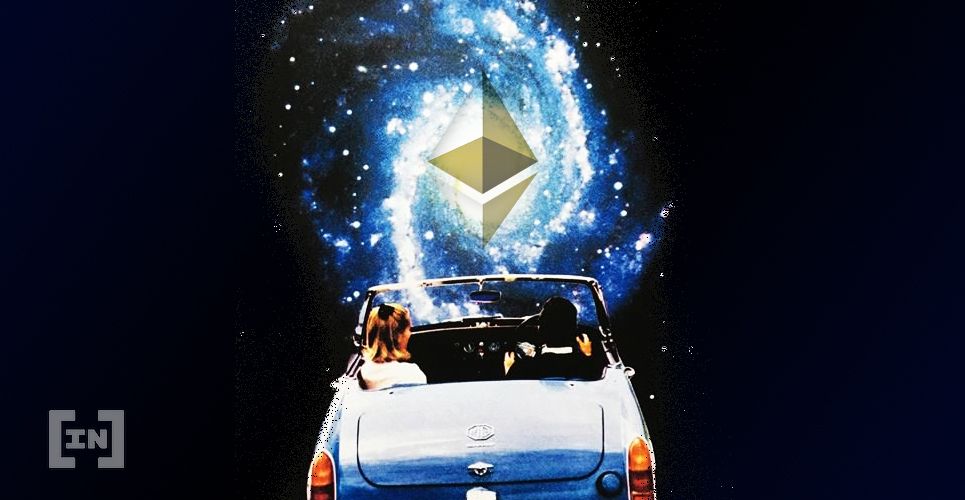Ethereum 2.0 – a New Way Forward?
The fundamental change for ETH 2.0 involves a move away from the current Proof of Work (PoW) model to a fully Proof of Stake (PoS) one. The PoS system differs from PoW, in that your ability to validate blocks and participate in the decentralized management of the blockchain, is not reliant on your computer’s processing power. Instead, it involves you staking several crypto-tokens by locking them up. ETH 2.0 will reward users for staking these tokens, both relative to their investment, and the number of other users staking on the blockchain. Users who have staked a minimum of 32 ETH can participate in votes on major decisions within the new ecosystem.A Greener, More Efficient Way Forward
The advantages of PoS include less computational and energy usage as well as heightened security against hacking and malicious actors. Additionally, without having the ever-increasing blockchain processing requirements, this should open up the management of the blockchain to a wider variety of users. Questions remain about ETH 2.0’s implementation, however. Co-founder Vitalik Buterin was recently engaged in an online spat with the CTO of SKALE Labs, Konstantin Kladko. Kladko alleges that the second version will not get off the ground:His argument is centered around the ‘One-way Bridge’ concept that exists within the new blockchain. Users who wish to participate in staking for the latest blockchain solution will not be able to do so using fiat or other cryptocurrencies. Instead, they will have to stake a minimum of 32ETH, which will then convert into ETH2. This transaction, as Konstantin points out, can only happen one-way. You won’t be able to trade your ETH2 back into ETH1:Unfortunately, there are fatal flaws in the way ETH2 staking ended up implemented.
— Konstantin Kladko (@Stan_Kladko) June 2, 2020
When staking starts it is going to be a huge embarassment, because there may be not enough money to start the network. #DeFi
In other words, you’ll be exposing your hard-earned ETH on the new platform, which the well-known website Staking Rewards categorizes as “very risky”. The risks are numerous:Thank you for the question!
— Konstantin Kladko (@Stan_Kladko) June 2, 2020
Here it is : when you stake ETH1 you actually destroy it. And there is no way to get it back
ETH2 is a separate currency since there is no way to convert ETH2 to ETH1
If,say ETH2 = 0.5 ETH1,YOU IMMEDIATELY LOSE 50% of money when you stake! https://t.co/h5wlI197qp
- Firstly, you could immediately lose money based on the conversion from ETH1 to ETH2 (A 50% loss in the above hypothetical example).
- The second risk is that your staked ETH provides no guarantee of a profitable return. Either from the eventual value of ETH2 dropping below your original investment or a penalty for not effectively fulfilling your role as an ETH 2.0 validator.
- Thirdly, ETH2 will be a brand-new crypto token, and users will not initially be able to trade their ETH2, including any rewards earned from staking.
Vitalik was nevertheless bullish in his response to this, pointing out that users who are already signed up are “well aware of the risks”. Investing significant capital into new crypto-ventures is by now well-known. This does play into a commonly-held suspicion: that these crypto projects often rely on people joining who don’t fully understand the risks or the complex system that underpins such projects. This discussion emphasizes the open and collaborative nature of the crypto industry, and it’s expected that Vitalik will clarify these questions in the coming days, most likely doing so via social media.I think everyone looking to stake already knows that they are taking a bet that the transition will successfully complete. We fully expect fewer stakers at the beginning, and they will get a return commensurate with this higher risk.
— vitalik.eth (@VitalikButerin) June 2, 2020
Disclaimer
In adherence to the Trust Project guidelines, BeInCrypto is committed to unbiased, transparent reporting. This news article aims to provide accurate, timely information. However, readers are advised to verify facts independently and consult with a professional before making any decisions based on this content. Please note that our Terms and Conditions, Privacy Policy, and Disclaimers have been updated.
